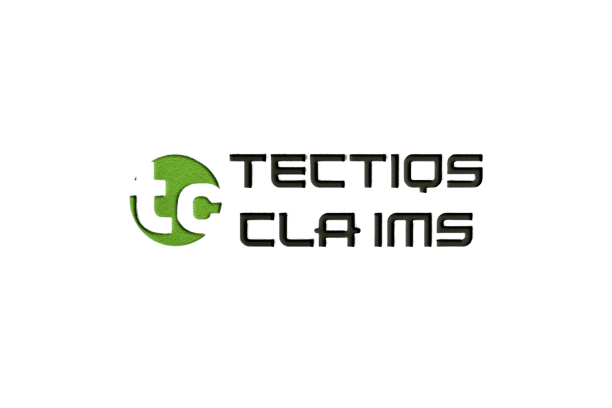A personal Injury claims adjuster assists other people in receiving the amount they are they need after an accident or an injury. They draw out specific conclusions about which insurance company should offer the claimant how much money should be given to him. In this article, you will find out what a Personal Injury Claims Adjuster is, how one can get a job as a Personal Injury Claims Adjuster, and some other information.
What does a Personal Injury Claims Adjuster do?
Specializing in handling personal injury compensation claims, a Personal Injury Claims Adjuster is an employee of an insurance firm or is a freelancer paid by the firm. This is the role of the adjuster when a person seeks a compensation for an injury, the incident is investigated and the extent of payment made is determined. This may be in form of an accident, car crash or any other civil injuries.
The Main Responsibilities of a Personal Injury Claims Adjuster
When a person files a claim for personal injury, the adjuster will:
Review the Claim: Review the specifics of the incident and determine whether or not the resulting injury is compensated by the policy.
Investigate the Incident: Ask the casualty, anyone around the scene and other people to get their side of the story.

Assess the Damage: BURN: Consider the medical expenses, lost earnings, and all other damages which occurred due to such an event.
Negotiate a Settlement: Determine the amount which the insurance company is willing to compensate. At some point, the adjuster may quote a number which is not as big as what the claimant wants.
Make a Decision: After that, the adjuster came up with a figure of compensation to give to the insurance company to approve.

Why do we need personal injury claims adjusters?
Personal Injury Claims Adjusters also ensure that the claims are processed to the highest standard possible. They assist individuals with the right compensation once injured, while avoiding over-compensation, which is the company’s loss. The job it entails the qualities of exercising good judgment, communicating effectively and being detail oriented.
Requirements to Become a Professional Personal Injury Claims Adjuster
It might take a couple of steps to become a Personal Injury Claims Adjuster. Here’s how you can start:
Education Requirement
It is recommended that most personal injury claims adjusters have at least a high school diploma or general educational development, GED, equivalent. Some employers look for job seekers who have an associate’s or bachelor’s degree. But it is not mandatory to complete a degree and sometimes, some people have just a high school diploma, you can also prevail.
Get the Right Training
In most of the states, you must sit through a training program before you can engage yourself as a claims adjuster. The information included in this course relates to the general sections of an insurance policy, state insurance laws, and the handling of claims. Some states also have laid down law that there must be some anticipating hours of training.
Pass the Licensing Exam
In most states, however, there is a licensing exam that one has to complete when settling to be a claims adjuster. The exam comprises of insurance policies, rules and laws that are usually in force. Once you pass it you are licensed to practice or start working.
Continue Learning
Another they need to take continuing education courses once you get your license. They educate you on the modern legal developments and insurance systems. The reason is that many states demand it to be performed every few years.
Start Your Career
After license, one can practice as a claims adjuster immediately. You may work for an insurance company or perhaps you’re self-employed and sell on your own. Independent adjusters have more job freedom, but they are required to seek their own business.
What You Should Know About Being a Personal Injury Claims Adjuster
To do well in this career, you need certain skills:
Good Communication: Besides, you will have to interview claimants, witnesses and other individuals. There are occasions when the responses are rather complex so you will have to listen attentively and then paraphrase your responses.
Attention to Detail: There is only one thing that you have to do and that is review all the details. Probably, a small detail might turn the scale in a case.
Problem-Solving: Ordinary personal injury can also arise and due to the various circumstances involved it can be complex. You will have to reason and make impartial conclusions in this case.
Organization: It means, during your work you will have to process a significant amount of papers and information, so, be organized.
Knowledge of the Law: You don’t have to be a lawyer to practice it, but having a few points about personal injury law will be useful.
What is Relevant information about Personal Injury Claims Adjuster’s salary?
According to data gathered for the United States, the average personal injury claims adjuster earns $61 465 per year. Though, this may differ with respect to experience, place and whether you are an employee of the insurance company or a freelancer. Some of them can thus earn considerably higher, primarily in cases where they get their hands dirty with numerous claims.
Benefits and Disadvantages of Being a Personal Injury Claims Adjuster
Pros
Job Security: Claims adjusters will always be useful and especially after an event such as an auto accident or a disaster such as an earthquake.
Freedom: That’s the main advantage if you decide to work as an independent adjuster – you decide on your cases and your working hours.
Good Pay: The salary of this job is relatively high and those Chipotle’s employees also get a chance to earn a better wage after some years of working.
Cons
Stressful: It may be stressing dealing with upset customers and having to sort and analyze a claim.
Tough Negotiations: It is possible that you require paying the claimant less than what they offer; in some cases, that is reasonable enough.
Long Hours: Certain cases take more time than others, or during an overwhelming period as that following a calamity.
How to Work with a Personal Injury Claims Adjuster
When you file a claim it is sometimes challenging to work with the claims adjuster. If the adjuster is from the insurance company, he/ she may offer less than you could receive. To help make sure you get a fair settlement:
Keep Detailed Records: Card the copied documents and preserve all medical receipts, police statement, photographs and other proof.
Get Your Own Estimates: Do not take the numbers provided by the adjuster in the face value. Request your own repair or medical estimates.
Hire Your Own Adjuster: If you want somebody to look out for your best interest, do yourself a favor and hire the independent adjuster.
Common Questions You May Be Asking (CQYMBAs)
What education does it take to become a Personal Injury Claims Adjuster?
Training is normally for a few months and in order to get licensed, one must also pass an examination, normally takes about few months.
Do I need a degree for this position of Personal Injury Claims Adjuster?
No, but it would be beneficial if you have studied degrees in insurance, business or law.Is being a
Personal Injury Claims Adjuster stressful?
Yes, at times it could be a stressful job, considering the reactions of upset claimants…or a complicated case.
Can I work from home as a paralegal?
Indeed, there are independent claims adjusters who practice from their homes, especially when they are running their own businesses.
Conclusion
Personal Injury Claims Adjuster is an important position within the insurance industry. It can be quite stressful but this work guarantees job stability, decent income and, most importantly, people are given deserved compensation. If you’re interested in this career, the steps are clear: if they study the right course, write the licensing exam and get their licences, they can begin work. If this is done as an employee of an insurance company or as an independent adjuster, this can be a very fulfilling job.


